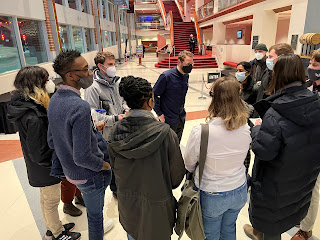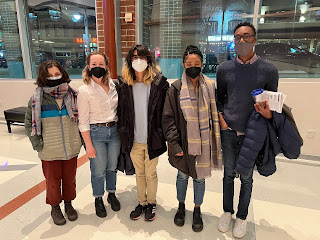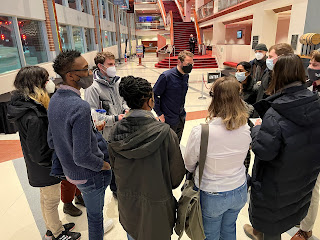We asked some of our fabulous Lawrence University students to join us at the March 12 concert and share their thoughts. Our first reviewer is Gabe Roethle. Thank you, Gabe!
It's quite refreshing to see and hear a symphonic program where
underrepresented pieces and composers are given as time and attention as the
"big greats." It is too easy for an orchestra to meet the quota of a
single short piece by a minority composer shoved in some corner of the program
to leave room for the familiar works.
It is evident that Maestro Sütterlin, from his pre-concert talk to his on-stage
notes to his energetic conducting, cares less about satisfying and more about
provoking; provoking new ways to think about new and old music.
I was very
pleased to hear that next season the orchestra would be performing an entire
symphony by the 19th century French composer Louise
Farrenc, whose Overture No.1 in E minor the orchestra performed in this
concert.
Maestro Sütterlin did not
shy away from stating plainly and simply why works by composers who were not
white men had been neglected by the world of classical music for so long, and
the way he spoke about and directed the three pieces on the first half of the
program (by Louise Farrenc, Jessie Montgomery, and Samuel Coleridge-Taylor)
shows his and the orchestra's dedication to changing the narrative of the world
of classical music.
As a young, aspiring violinist, I feel obliged
also to comment on the orchestra's performance of Rimsky-Korsakov's
Scheherazade, which was every bit as enchanting as the stories on which it was
based. Concertmaster Yuliya Smead played each of her many solos with cool but
ever-virtuosic flair. It was a delight to follow along with the cadenzas that
were part of my audition excerpts for summer festivals.
I can attest to the
comfort of familiarity that this performance offered, although its placement
after the thought-provoking (though no less beautiful!) first half made me
listen to the piece in a different way.






